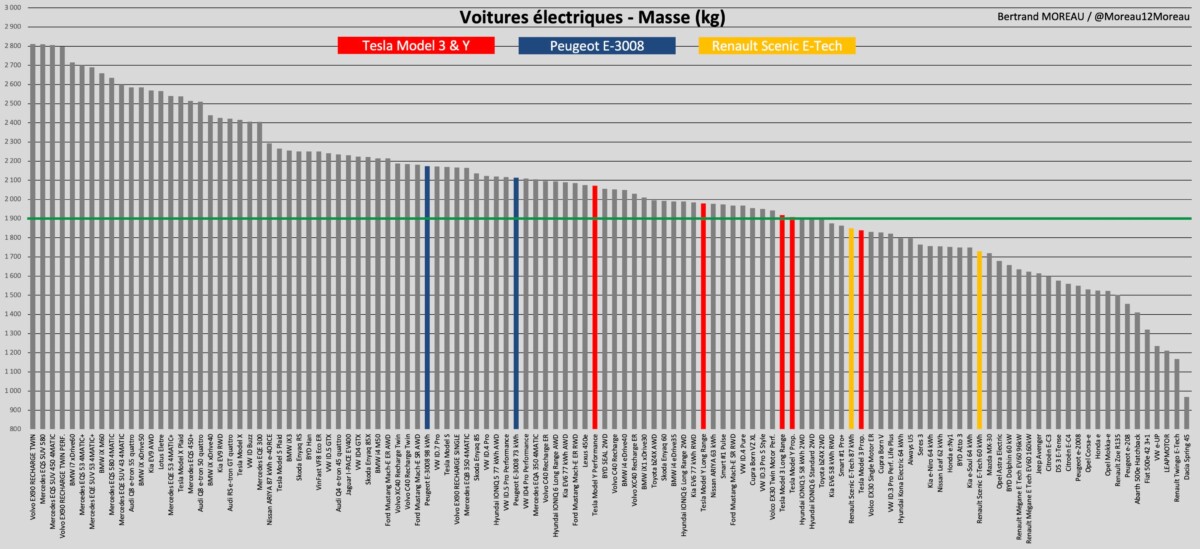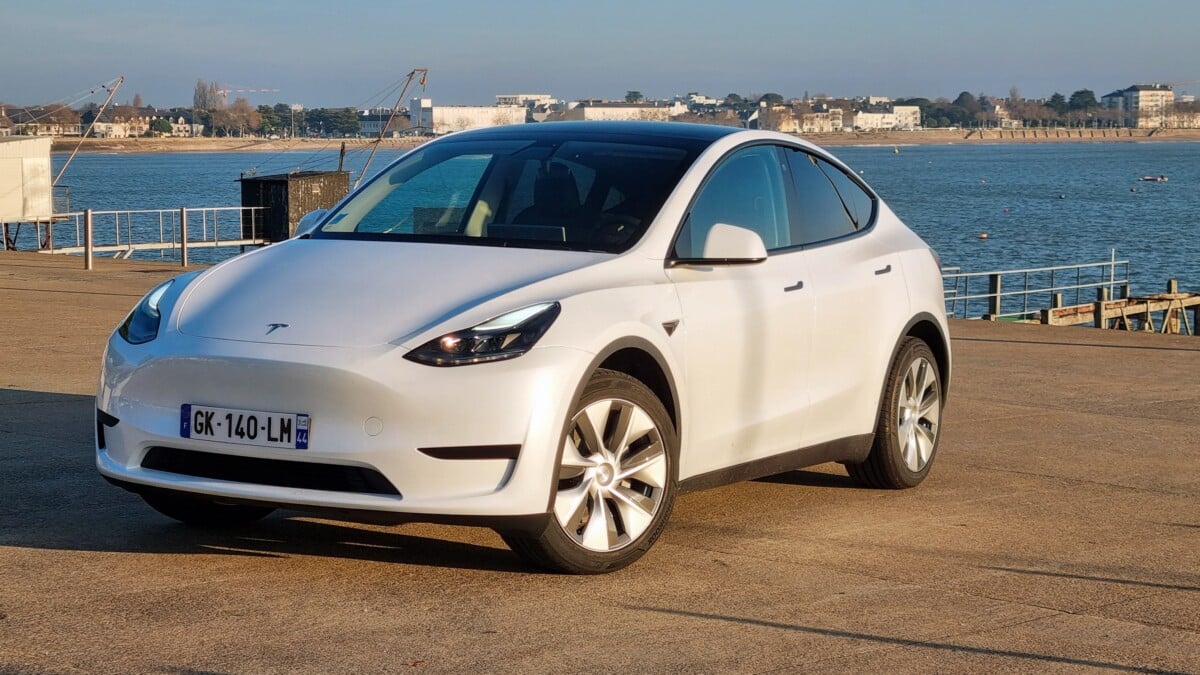The French Senate is currently considering the introduction of a tax on the weight of electric cars. This measure, which aims to favor lighter vehicles, would affect almost all manufacturers. And it could apply from 2024.
Critics of electric cars often put forward an argument that sparks debate: ultimately, these vehicles could be subject to the same taxes and charges as combustion vehicles.
This perspective calls into question the cost advantage argument for electric cars.
Currently, the latter benefit from an ecological bonus, a financial incentive to encourage their adoption. However, this bonus is largely financed by the penalty imposed on thermal cars. However, with the evolution of the automobile market towards electric, the source of financing for this bonus is gradually drying up, raising questions about its sustainability.
In addition, another economic dimension could come into play: the taxation of electricity used for electric cars. This idea is not new and is already being implemented in some countries, such as Australia. The intention behind this measure would be to compensate for the drop in tax revenue linked to the consumption of fossil fuels. Taxes on gasoline represent, in fact, a significant source of revenue for the State, and the transition to electricity naturally leads to a reduction in this consumption.
Thus, taxing the electricity of electric vehicles could be considered as a means of balancing public finances in the face of this development in the automobile market.
This time, French senators are considering, in fact, introducing a specific tax for certain models of electric cars, from 2024. As is already the case in part of Belgium.
Potential impact on the automotive market
The implications of such a measure would be significant. According to Numerama calculations, many models, including family SUVs, high-end sedans and vehicles in the premium segment, would be affected. We are talking about a penalty of 10 euros per kilogram above 1,900 kg, as part of the weight penalty which comes into play on January 1, 2025.

A graphic created by Bertrand Moreau illustrates the impact of this tax on various European models. For example, the Peugeot e-3008, as well as certain Tesla Model Y models, would be subject to a significant penalty, while smaller vehicles like the Renault Scenic E-Tech would be spared.

This weight penalty would affect a large part of the electric models currently on sale. Although these models do not necessarily represent the highest volumes on the market, they include popular vehicles like the Tesla Model Y, one of the sales leaders in 2023. In the TOP 20 of French registrations, five models could be taxed for their weight.
For now, it is important to note that this proposal remains in draft form. Nothing has been definitively adopted, and the situation therefore remains conditional.
Is it a good idea ?
The aim of this policy is to encourage the adoption of smaller, more affordable electric cars, which tend to have a lower carbon footprint. By encouraging owners of larger, and therefore heavier, electric cars to pay a higher tax, France seeks to reduce inequalities and encourage a transition to more environmentally friendly vehicles.
But as we can see with the example of a Tesla, weight is not everything. In fact, the Model Y is among the electric cars that consume the least electricity. And it would however be taxed more than a thermal Renault Mégane which pollutes more over its entire life cycle.
